Notes d’actualité

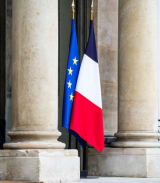 |
Autonomie stratégique: défaire la France sans faire l’Europe
Esprit Surcouf
23 sept, 2023
A en croire les déclarations du président Macron en matière de « souveraineté » (européenne, cela s’entend), le concept d’autonomie stratégique, prôné par Paris depuis des décennies, serait en train de conquérir les cœurs et les esprits. Mieux : « la bataille idéologique est gagnée », se félicite-t-il. Mais qu’en est-il vraiment ?
|
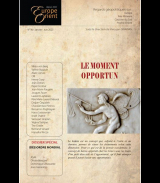 |
La Suède et la Finlande à la porte de l’OTAN (l'effet sur la politique de défense de l'UE)
Europe & Orient n°36
13 juin, 2023
"Parmi les atouts que les responsables otaniens énumèrent pour souligner que les deux pays nordiques seront des « contributeurs nets » à la sécurité des alliés on trouve, mine de rien, le grand nombre de chars, l’expérience dans la défense du territoire et… la conscription qui n’a jamais été suspendue en Finlande et fut rétablie en Suède en 2017. Bref, ce que l’on nous a présenté, depuis les années 1990, comme démodé, appartenant à « la guerre d’hier » serait un atout aujourd’hui. Un bon rappel, s’il en fallait un, pour ne pas prendre toutes les déclarations du moment au pied de la lettre. A commencer par le discours convenu autour de l’adhésion de la Finlande et de la Suède." (Extrait)
|
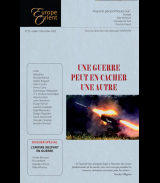 |
Retombées de la guerre en Ukraine – l’Amérique première puissance européenne?
Europe & Orient n°35
20 déc, 2022
L’otanisation de l’Europe », l’expression vient du président Biden lui-même pour décrire le processus qui s’est déclenché dès le moment où l’armée russe a franchi la frontière ukrainienne. Cela aurait pu se passer autrement. D’aucuns pensaient que les Européens, confrontés à la réalité de la chose militaire qu’ils avaient délaissée depuis des décennies, allaient réagir par un sursaut d’autonomie. Il n’en fut rien. L’expérience a été vécue d’emblée sous le double sentiment de l’impuissance diplomatico-militaire européenne et du parapluie américain véhiculé par l’OTAN et son article 5. La position des Etats-Unis en tant que « puissance européenne » s’en trouve singulièrement renforcée. Durera, ne durera pas ? Des incertitudes existent.
|
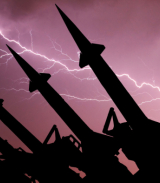 |
Les tambours de guerre russo-ukrainiens font ressortir un tabou de trente ans de l'OTAN
Portfolio
11 janv, 2022
Après la mobilisation spectaculaire des troupes russes à la frontière ukrainienne et les admonestations occidentales en réponse, Moscou a décidé de passer la balle à l’OTAN et à Washington. Fait inhabituel en diplomatie, il a décidé de publier au grand jour, à l'adresse de l'un et de l’autre, un projet d'accord. Ce que certains considèrent comme une base de négociation, d'autres comme un ultimatum, d'autres encore comme de la pure provocation. Le point focal des deux textes est l'expansion vers l’Est de l'organisation militaire dirigée par les États-Unis, y compris l'éventuelle adhésion de l'Ukraine à l’Alliance atlantique. Plus précisément le rejet catégorique de celle-ci. Le président Poutine pourrait ainsi frapper plusieurs oiseaux d’un coup : souder sa propre opinion publique derrière lui, tout en attisant les contradictions entre les alliés de l'OTAN, et qui plus est sur une question où, objectivement parlant, les arguments de la Russie ne peuvent être balayés d'un revers de la main.
|
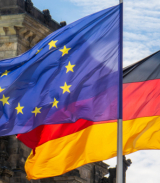 |
Les Allemands sont-ils de « bons Européens »? Ou...
Portfolio
25 sept, 2021
...ne font-ils qu'utiliser l’UE pour renforcer encore davantage leur propre puissance nationale ?
Au sujet des élections allemandes, les spéculations vont bon train quant à savoir ce que signifierait un tel ou tel nouveau gouvernement allemand pour la construction européenne. Il serait sans doute utile de revenir d’abord sur ce que l’Europe signifie, en général, pour l’Allemagne et vice versa. Car il y a peu de chance que les grandes lignes, les mêmes depuis de longues décennies, changent. En 1963, le président français Charles de Gaulle trancha de façon sommaire : « Les Allemands se conduisent comme des cochons. Ils trahissent l'Europe ». Cette vision, certes soigneusement voilée derrière des formules diplomatiques, n’en est pas moins largement partagée outre-Rhin, y compris aujourd’hui. Parallèlement, en d’autres endroits, il est commun de considérer Berlin comme le bon élève de l'UE : l’Allemagne paierait comme une véritable vache à lait ; elle donnerait de plus en plus de pouvoir aux institutions communautaires ; il n’y aurait pas plus écolo qu’elle ; et sur les questions de défense, elle se fait modeste (tout au plus lâche-t-elle quelques mots ici et là sur le désarmement global et la paix universelle). Serait-il possible que tout ceci ne soit qu’une savante tactique ?
|
 |
L'Europe veut devenir une superpuissance numérique – du moins c’est ce qu’elle dit
Portfolio
22 aout, 2021
Dans le secteur numérique, les Américains font du business, les Chinois copient et les Européens régulent, selon la formule consacrée, devenue largement obsolète. Car à mesure que la Chine se positionne de plus en plus en concurrent des États-Unis, la rivalité technologique est désormais une priorité stratégique pour les deux. La nouvelle donne siffle « la fin de la récrée » : même ce rôle de régulateurs, les Européens pourraient bientôt le perdre. Alors que Washington et Pékin mobilisent des centaines de milliards de dollars et tout leur arsenal politico-diplomatique en soutien du secteur technologique, la plupart des États membres de l’UE ne voit pas plus loin que le bout de son nez : ils tiennent au dogme du « marché ouvert » pour saborder toute initiative autonome, européenne. Ceci alors même que, pour reprendre la comparaison faite par le directeur d’Ericsson, quelqu’un qui n’a aucun constructeur automobile, pas beaucoup de routes, ne peut pas imposer des règles du code de la route. Sans la maîtrise intégrale des technologies et des infrastructures numériques de rupture, l’Europe sera tôt ou tard obligée d’importer les éléments clés, règles comprises, des autres.
|
 |
Un rideau de fer numérique risque de s'ériger dans la nouvelle guerre froide
Portfolio
24 juil, 2021
L’ennemi prend le contrôle à distance d’un F-35 américain hypersophistiqué survolant le détroit d’Ormuz, et force l’avion à atterrir ; à Washington, le conseiller du président est alerté par son interlocuteur chinois d’un texto venant de sa mère – y compris le contenu du message ; le système de communication de l’administration toute entière tombe en panne, des téléphones de bureau jusqu’aux cartes bleues de fonction, en passant par les e-mails ; la flotte américaine évoluant dans la mer de Chine méridionale devient sourde, muette et aveugle d’un coup à la suite d’une cyberattaque – les bâtiments de guerre finissent par communiquer entre eux avec des signaux flottants. Ces scènes figurent dans un livre récent, « 2034 – La prochaine guerre mondiale », co-signé par l’amiral James Stavridis, ancien commandant suprême de l'OTAN. Le timing n’est pas le fruit du hasard. Ces jours-ci, lorsque des décisions de plus en plus tonitruantes sont prises à propos de Huawei, ZTE, Google, Facebook et compagnie, c’est ce genre de scénario catastrophe, voire pire, qui se trouve au bout du raisonnement des décideurs politiques.
|
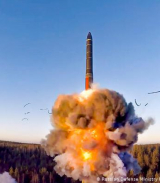 |
L’apocalypse nucléaire ajournée – au lieu du bunker antiatomique, un château de cartes
Portfolio
28 févr, 2021
L’extension de 5 ans de l’accord nucléaire russo-américain, le Nouveau Traité START eut l’effet d’une bombe, pour ainsi dire, dans les milieux de la maîtrise des armements, à peine deux semaines après l’entrée en fonction de l’administration Biden. Le spectre de l’apocalypse nucléaire s’est évaporé, ou du moins fut reporté sine die. Le monde entier peut pousser un soupir de soulagement. Ou peut-il vraiment ? Un tel accord vaut-il plus que le papier sur lequel il est écrit ? Et qu’en est-il des autres accords censés le compléter mais qui s’était vidés depuis ? Et pourquoi la Chine, l'ennemi n°1 des Etats-Unis, n’y figure pas ? Et en ce qui nous concerne au premier chef : comment se fait-il que l’Europe n’a toujours pas son mot à dire dans les négociations qui se poursuivent, au-dessus de sa tête, entre Russes et Américains ?
|
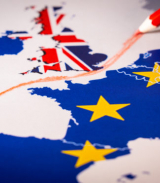 |
Le Brexit, camouflet ou cadeau pour l'Europe?
Portfolio
28 janv, 2021
Derrière les jérémiades sans fin sur la « perte » du Royaume-Uni, en réalité beaucoup s’en réjouissent, qui pour une raison, qui pour une autre. Les avocats de l’Europe fédérale pensent que la voie est dégagée, maintenant que l’ennemi juré de toute idée de mise en commun (approfondissement de l’intégration) se trouve écarté du jeu pour de bon. Les chantres d’une Europe indépendante – laquelle dépendrait moins de l’Amérique – observent d’un sourire narquois le départ du « cheval de Troie » des Etats-Unis, croyant que leur moment est enfin venu : sans Londres, l’éternel torpilleur de toute initiative politique ou militaire de l’Union, l’Europe pourrait devenir elle aussi un des pôles de puissance du monde. De tels raisonnements ne sont pas complètement sans fondement – mais c’est sans compter avec les déchirements internes des Vingt-Sept restants.
|
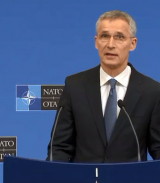 |
L'OTAN en langue de bois
Note IVERIS
10 déc, 2020
L’art de l’esquive, pratiqué à la perfection par Jens Stoltenberg, Secrétaire général de l’Alliance de l’Atlantique Nord, fut déployé dans toute sa splendeur lors d’un entretien accordé début décembre 2020 à Politico. Tous les sujets polémiques y furent passés en revue, sans même l’ombre d’une réponse ou d’une clarification pour aucun d’entre eux. En revanche, on a pu y admirer les principaux éléments de langage auxquels on aura droit dans les prochains mois. Petit dictionnaire du volapük otanien.
|
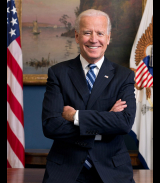 |
Joe Biden et l'Europe: les bénéfices et les inconvénients de l'enrobage en sucre
Portfolio
12 nov, 2020
En arrière-fond des festivités pan-occidentales célébrant la victoire de Joe Biden, on devine quelques notes de prudence, plus en tout cas que ce n’était le cas il y a douze ans, lorsque Barack Obama a succédé à George W. Bush à la présidence américaine. Bien entendu, les rengaines du type « la vraie Amérique est de retour » sont de nouveau entonnées à tue-tête – non complètement sans raison à certains endroits et sur certains sujets. En revanche, pour l’Europe la question se pose : est-ce qu’elle aura plus à gagner ou à perdre avec Biden et sa nouvelle administration.
|
 |
Aux racines de notre absence d'Occident
Népszava
15 mars, 2020
La Conférence de sécurité de Munich, organisée chaque année, est une grand-messe transatlantique aux rituels bien rodés. C’est la crème de la crème de part et d’autre de l’Atlantique qui se retrouve ici (présidents, premiers ministres, commissaires européens, parlementaires de premier plan, dignitaires OTAN, ministres des Affaires étrangères et ceux de la Défense) pour affirmer, en se rassurant, qu’en dépit de tels ou tels désagréments du moment, les intérêts restent « communs », les valeurs « partagées », et la sécurité « indivisible ». Sauf que cette année, aucun des trois ne fut crédible. Et ce, de manière hautement visible. Au point que les organisateurs ne s’efforçaient même plus à s’en cacher. L’édition 2020, la cinquante-sixième de la série, eut lieu sous le titre de « Westlessness », ce qui associe, en bon anglais, la notion de l’absence d’Occident à l’idée de « tourments »
|
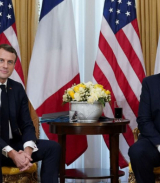 |
Qui a plus « besoin de l’OTAN » ? La France ou… les USA?
IVERIS
12 déc, 2019
Coutumier des déclarations fracassantes mais pas forcément étayées par les faits, le président Trump en a placé deux d’un coup, au dernier sommet de l’Alliance, lors d’une conférence de presse : « Personne n’a besoin de l’OTAN plus que la France (…) Les Etats-Unis en tirent vraiment le moins de bénéfices ». Deux inepties qui méritent que l’on s’y arrête.
|
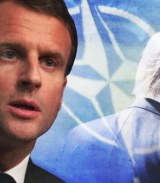 |
Au-delà des critiques de Macron sur l'OTAN: un malaise français croissant vis-à-vis de l'Alliance
Foreign Policy Research Institute
26 nov, 2019
En parlant, dans un entretien accordé à The Economist, de la « mort cérébrale » de l’Alliance atlantique, le président Macron pouvait être certain de provoquer le courroux de ses homologues européens. S’il a choisi de s’y lancer, c’est parce qu’il y voit une urgente nécessité. A un an des prochaines élections US et avec l’enlisement du Brexit, une fenêtre d’opportunité sans précédent est en train de se fermer. Cet alignement des planètes unique, qui dans la vision française aurait dû permettre d’entraîner enfin les partenaires de l’UE sur le chemin de l’autonomie stratégique, n’a pas vraiment porté ses fruits.
|
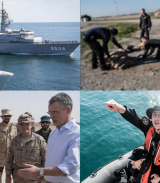 |
Une OTAN de plus en plus englobante
IVERIS
18 oct, 2019
Depuis plus de vingt ans, les Etats-Unis poussent à « globaliser » l’Alliance, au motif qu’elle doit s’adapter aux nouveaux risques et menaces si elle veut, soi-disant, « rester pertinente » (en d’autres termes : prouver son utilité pour les intérêts américains et s’assurer, en échange, le maintien de l’engagement US sur le vieux continent). Le raisonnement est, somme toute, logique. Sauf que pour les Européens il aboutirait mécaniquement à abandonner toutes leurs politiques. Le défi consiste à empêcher, autant que faire se peut, que le champ de compétences de l’organisation s’étende à d’autres domaines (non-militaires) et à d’autres zones géographiques (au-delà de l’espace euro-atlantique). Car l’objectif des efforts de « globalisation » est de faire en sorte que les Européens – qui dans l’OTAN se trouvent dans une position de subordination par rapport à l’Amérique – formulent leurs politiques diverses et variées non plus en dehors, mais au sein de l’Alliance atlantique.
|
 |
Proposition indécente ? Ce que l’idée de Trump d’acheter le Groenland nous dit sur l’OTAN
IVERIS
22 sept, 2019
En jetant son dévolu sur l’île de Groenland, le président Trump a provoqué, comme à l’accoutumée, un mélange de consternation, d’opprobre et de franche rigolade sur la scène internationale. La plupart des commentaires se contentaient de critiquer son style et sa bouderie : il a parlé d’une « grosse transaction immobilière » et, face au refus de vente, il a annulé sa visite prévue et traité les propos du Premier ministre danois de « méchants ». Des observateurs plus avisés ont fait remarquer que l’initiative de Trump est moins fantasque qu’elle n’y paraît au prime abord – elle s’inscrit dans une politique américaine poursuivie de longue date dans la région. Quoi qu’il en soit, pour l’Europe l’essentiel n’est pas là. Il est plutôt dans la mise à nu, pour la énième fois depuis l’arrivée de Trump au pouvoir, d’un raisonnement américain aussi implacable qu’inconfortable.
|
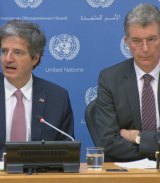 |
Une seule voix, mais laquelle? La France devrait-elle céder à l'UE son siège au Conseil de sécurité?
Foreign Policy Research Institute
20 mars, 2019
La présidence « partagée » du Conseil de sécurité des Nations Unies entre la France (membre permanent) et l’Allemagne (membre non permanent, élu pour deux ans) en mars-avril ne saurait occulter les récentes échauffourées des deux partenaires au sujet, justement, de leurs places respectives aux Nations Unies. L’Allemagne souhaite que le siège de membre permanent de la France soit européanisé (c’est-à-dire qu’il revienne à l’ensemble de l’UE) – une proposition à laquelle la France continue à opposer une fin de non-recevoir catégorique. L’« égoïsme » de Paris ferait-il obstacle à l’ambition européenne portée par Berlin ? A y regarder de près, c’est plutôt l'inverse.
|
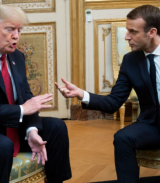 |
La brouille Macron-Trump sur « l'armée européenne »
Notes d’actualité, 22 nov, 2018
La querelle d’un bluffeur et d’un bouffon autour d’une idée loufoque. On pourrait caricaturer ainsi la polémique qui s’est déroulée, à coups d’interviews et de tweets, entre les présidents français et américains après que le premier a évoqué le fumeux concept d’une soi-disant armée européenne. Difficile de dire ce qui a pu passer par la tête du chef de l’Etat, sachant que s’il y a un pays pour lequel la mise en commun des forces européennes signifierait une perte nette, pour ne pas dire désastre fatal, c’est bien la France. Sans doute en est-il conscient, auquel cas il a dû trouver que le plus grand mérite de ce concept est justement qu’il n’a aucune chance. Et qu’il irrite, au passage, le président Trump.
|
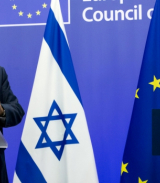 |
Jérusalem : le président Trump met au défi les réflexes « pavloviens » des Européens
Foreign Policy Research Institute
18 mai, 2018
Avec la reconnaissance de Jérusalem comme capitale d’Israël et la décision d’y transférer l’ambassade US, le président Trump a fait un premier pas pour briser l’un des réflexes les mieux ancrés des Européens. Car, comme l’avait remarqué l’ancien commissaire européen Chris Patten, sur le dossier proche-oriental en particulier « le principal déterminant du comportement politique de l'Europe » a été jusqu’ici « le refus pavlovien de toute ligne de conduite qui pourrait éloigner l'Europe des Américains ».
|
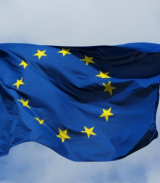 |
Drapeau européen : symbole d’une « allégeance » ou d’un « lien »?
Notes d’actualité, 30 nov, 2017
Au sommet de mi-octobre de l’UE à Bruxelles, le président Macron s’est associé à la Déclaration n°52, dix ans après l’adoption du traité de Lisbonne où la France avait décidé de ne pas signer ladite déclaration.[1] Si le chef de l'Etat a fait le choix de revenir sur cette décision aujourd'hui, c’est avant tout en réponse à l’appel du leader de la France Insoumise, Jean-Luc Mélenchon, qui réclamait le retrait du drapeau européen à l’Assemblée nationale. Certes, la Déclaration n’est pas légalement contraignante, mais sa signature n’en devrait pas moins affirmer, d’après le Président,[2] « l’attachement » de la France aux symboles de la construction européenne. Sauf que la nature de cet attachement peut être très différente selon que l’on se réfère à la version française ou anglaise du texte originel.
|
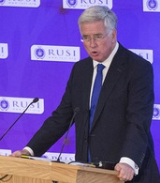 |
Les Britanniques commencent à se poser des questions sur leur relation spéciale avec l'Amérique
Note IVERIS
11 déc, 2016
Illustration parfaite d’un alignement des planètes favorable, comme jamais jusqu’ici, à l’Europe de la défense [1], même les Britanniques commencent à s’inquiéter de leur dépendance. Dans une ambiance européenne générale où, sur le plan rhétorique au moins, les tabous de toujours sont levés les uns après les autrse (tels le concept d’autonomie stratégique, la défense collective, le noyau dur d’Etats membres, le quartier général permanent, ou l’implication de la Commission dans le secteur militaire), un tel début de prise de conscience outre-Manche ne serait pas totalement dénué d’intérêt.
|
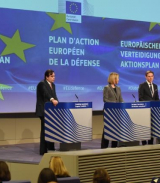 |
La Commission change, timidement, de logiciel sur la défense
Note IVERIS
03 déc, 2016
Avec son Plan d’action européen de la défense, la Commission de Bruxelles amorce un véritable changement de paradigme, à triple titre. La grande nouveauté, c’est la mise à disposition de financements communautaires pour soutenir la recherche et des programmes militaires. Qui plus est, sur deux autres sujets controversés, atlantisme vs. autonomie et ouverture sans limites vs. politique industrielle, elle opère des infléchissements dans un sens positif: vers (un peu) plus d’autonomie et (un peu) plus de politique. Mais elle refuse toujours obstinément d’aller au bout de sa logique.
|
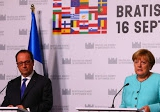 |
Défense européenne : « c’est parti » ?
Note IVERIS
20 sept, 2016
Interrogé le jour du sommet informel de l’UE à Bratislava, le 16 septembre, le ministre des affaires étrangères français assure : « on est en train d’avancer sur une politique commune de défense ». A la remarque sceptique qui s’en est suivie pour noter qu’il y a maintenant vingt ans que l’on en parle, de cette Europe de la défense, Jean-Marc Ayrault répond, apparemment sûr de lui : « Oui, mais ça y est, c’est parti ». Que son optimisme soit fondé ou pas, une chose est certaine : la défense européenne n’a jamais bénéficié d’une constellation aussi favorable que ces jours-ci.
|
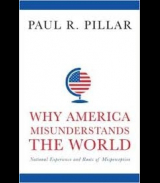 |
Pourquoi l'Amérique comprend mal le monde, de Paul R. Pillar (Note de lecture)
Note IVERIS
11 sept, 2016
A l’approche de la présidentielle US, il n’est sans doute pas inutile de méditer sur l’exceptionnelle continuité de la politique étrangère américaine, que ce soit entre George W. Bush et Barack Obama ou entre William (Bill) Clinton et Ronald Reagan. Certes, la première marque de la politique étrangère d’une grande puissance est toujours ses invariables, quels que soient les hommes et les circonstances. Cela étant dit, l’Amérique est un cas à part. Elle se caractérise à la fois par une vision déformée de son rapport avec le « reste du monde » et par une incapacité flagrante à corriger cette déformation initiale, qui découlent, toutes les deux, directement de sa géographie et de son histoire.
|
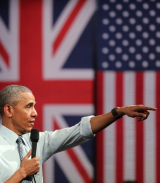 |
Brexit : un coup de poignard dans le dos des Etats-Unis
Note IVERIS
02 juil, 2016
Au lendemain du référendum britannique, le vice-président américain, Joe Biden s’est exprimé en disant : « Nous aurions préféré un résultat différent ». Quelques jours après, le Secrétaire d’Etat Kerry estime qu’il n’est toujours pas impossible de revenir en arrière. En effet, au cours des six dernières décennies, l’Amérique avait fait des pieds et des mains pour obtenir, puis perpétuer la présence de son allié préféré au sein de la construction européenne. La raison en est simple. Comme l’explique l’ambassade US à Londres, « l’Union européenne est l’organisation la plus importante du monde dans laquelle l’Amérique n’a pas de place à la table ». Pour y faire entendre sa voix, il a donc besoin d’un cheval de Troie ou, en termes diplomatiques, « l’expression dans l’UE de l’approche commune américano-britannique grâce au statut de membre du Royaume-Uni ». Sauf que les électeurs britanniques viennent d’opter pour la sortie…
|
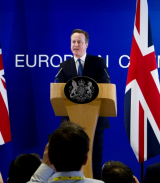 |
Le statut très spécial du Royaume-Uni
Note IVERIS
23 févr, 2016
A l’issue du sommet de l’UE des 18-19 février, destiné à trouver un arrangement qui satisfasse les exigences posées par Londres, en vue du référendum sur la sortie britannique de l’Union, le Premier ministre Cameron s’est targué d’avoir arraché un accord qui « allait donner un statut spécial » au Royaume-Uni. Au même moment, le président français a rappelé que, de par ses nombreuses exemptions, l’Angleterre « a toujours eu une place particulière en Europe ». C’est exact. Toutefois, la vraie spécificité des Britanniques à l’intérieur de l’UE aujourd’hui réside dans la prédominance idéologique de leur ligne résolument atlantiste et libre-échangiste.
|
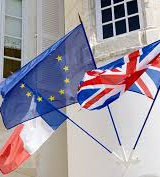 |
Au-delà de la question du Brexit
Note IVERIS
18 févr, 2016
En 1975, au moment du premier référendum britannique sur la question de savoir si l’Angleterre devait rester ou pas dans ce qui était alors les Communautés européennes, une caricature du Canard enchaîné dessina le Premier ministre Harold Wilson au lit, sur une Europa manifestement ennuyée qui l’implorait : « Entrez ou sortez, mon cher Wilson, mais cessez ce va-et-vient ridicule ». C’était il y a plus de quarante ans… Quatre décennies durant lesquelles l’Angleterre a soigneusement gardé sa position « semi-détachée de l’Europe », pour citer l’ancien Commissaire britannique, Chris Patten...
|
 |
Suite aux attentats de Paris, l’Europe de la défense renaîtra-t-elle de ses cendres ?
Note IVERIS
18 nov, 2015
En évoquant à Versailles, pour la première fois dans l’histoire, la clause de défense mutuelle de l’UE, le Président François Hollande a donné un coup de fouet formidable à la défense européenne. Au vu de l’extraordinaire emprise des Etats-Unis et de l’OTAN sur la sécurité en Europe, il s’agit d’un véritable coup de force. Dans la foulée, la Haute Représentante de l’Union européenne lui a emboîté le pas sans hésiter.
|
 |
Les USA vont-ils pouvoir engager les troupes de l’OTAN ?
Note IVERIS
10 nov, 2015
Peu évoqué en public, l’un des dossiers les plus déterminants pour l’avenir de l’OTAN concerne la proposition américaine qui souhaiterait que le Commandant suprême US soit investi de l’autorité de déployer, de son propre chef, les troupes de l’Alliance. A la conférence de Riga, cette question d’habitude présentée de façon délibérément ambiguë, a donné lieu à des clarifications édifiantes.
|
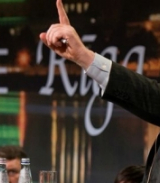 |
Une OTAN très combative à la Conférence de Riga
Note IVERIS
07 nov, 2015
Le premier panel de discussion de la Conférence de Riga, intitulé « L’OTAN défenseur de la stabilité globale », n’a laissé aucun doute sur les préférences des participants. Que ce soit un général britannique ancien Commandant suprême adjoint de l’Alliance, le M. Sécurité de la Fondation Adenauer en Allemagne, un ancien ambassadeur américain à l’OTAN, ou le Secrétaire d’Etat du ministère de la Défense de la Lettonie, ils sont tous pour une approche dure vis-à-vis de la Russie. Leur unique réserve par rapport à la politique actuelle des Etats-Unis et de l'OTAN est qu’elle ne s’affirme pas avec une fermeté suffisante.
|
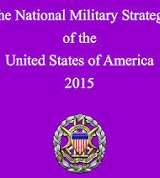 |
L’Amérique craint pour « son » ordre mondial
Note IVERIS
29 sept, 2015
Un récent rapport du Service de recherche du Congrès américain (CRS) se penche sur le « Changement dans l’environnement international de sécurité et les potentielles implications pour la défense ». Les formules de prudence cachent à peine que, d’après le rapport, une mutation a bel et bien eu lieu, marquée par la « tactique du salami » (tranche après tranche) pratiquée par Pékin en Mer de Chine orientale et la « guerre hybride » menée par la Russie en Ukraine. Cette nouvelle donne sécuritaire se caractérise par « le renouvellement de la compétition entre les grandes puissances » et « la remise en cause de certains éléments de l’ordre mondial dominé par les Etats-Unis ».
|
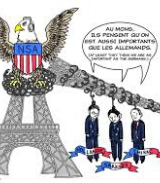 |
A la réunion de l’OTAN, bon courage pour parler de renseignement
Notes d’actualité, 24 juin, 2015
L’ambiance n'est pas assurée, pour la réunion ministérielle de l’Alliance atlantique aujourd'hui. Le moins que l’on puisse dire, c’est que la démonstration prévue de la parfaite unité transatlantique est quelque peu entachée par les toutes récentes révélations de Wikileaks sur l’espionnage américain contre trois présidents de la République successifs. L’actuel chef de l’Etat y compris.
|
 |
La « guerre hybride » tombe à pic
Notes d’actualité, 18 mars, 2015
La dernière Lettre de la Représentation militaire de la France à l’UE aborde le concept de la « guerre hybride » (très en vogue à la suite de la crise russo-ukrainienne, comme si on venait de découvrir qu'une guerre se conduit sous des formes multiples, dans des dimensions à la fois militaires et civiles). La conclusion que l’on en tire est édifiante à plus d'un titre.
|
 |
Armes létales et « unité occidentale »
Notes d’actualité, 04 févr, 2015
Armer ou ne pas armer l’Ukraine ? Telle est la question suspendue comme une épée de Damoclès au-dessus de la tête des ministres de la défense de l’OTAN qui se retrouveront demain 5 février pour discuter de leur fameux « plan de réactivité ». Les uns et les autres ont commencé à poser leurs jalons à la veille de la réunion. Or il est impossible d’ignorer le potentiel de désordre, au sein du soi-disant Occident, que comporte cette interrogation sur d'éventuelles livraisons.
|
 |
L'Amérique piégée par ses propres « récits »
Notes d’actualité, 03 févr, 2015
Le discours américain au sujet des adversaires (réels ou potentiels) a toujours tendance à osciller entre deux extrêmes. Tantôt c'est l'exagération exponentielle de la menace, tantôt c'est le dénigrement complet et le mépris total. Ce qui fait la particularité de l'attitude US, c'est que pour souligner tel ou tel point, ils sont prêts à combiner les deux - un exercice pour le moins délicat. Pour preuve : interviewé sur CNN et parlant de la crise russo-ukrainienne, le président Obama vient de le rater avec fracas.
|
 |
La CIA aime travailler en Europe: c'est facile, c'est chic et on reste entre amis
Notes d’actualité, 28 déc, 2014
La CIA forme ses agents à déjouer les contrôles de sécurité aux frontières de l’UE, d’après les manuels de l’Agence de renseignement US publiés par Wikileaks. Comme le note celui-ci, les documents, datés de 2011 et 2012, « prouvent que l’administration Obama et la CIA continuent de vouloir infiltrer les frontières de l’Union européenne, en conduisant des opérations clandestines sur le sol européen ». Sans surprise, ils sont classés « NOFORN » (pour no foreigners), autrement dit à ne pas partager avec les services d’espionnage alliés.
|
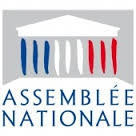 |
La France, quel gardien du temple pour l'Europe de la défense?
Notes d’actualité, 20 nov, 2014
« C’est la PSDC – ou vivre dans un monde dirigé par d’autres », ce constat limpide fut la réplique de l’ancien patron de l’Agence européenne de défense, Nick Witney, à un article qui préconisait d’oublier la PSDC (la politique de sécurité et de défense commune de l’UE) et de nous en remettre plutôt à la seule Alliance atlantique. Le constat est à moitié exact. L’enjeu, c’est en effet la sauvegarde (ou pas) de notre liberté de choix. Mais faire de la PSDC le dépositaire de cette ambition, ce serait ignorer profondément son évolution.
|
 |
Un pour tous, tous pour un ? (Partie 2 : interrogations dans l'Alliance)
Notes d’actualité, 29 oct, 2014
Au dernier sommet de l'OTAN, la défense collective a fait un « comeback » fracassant, la crise russo-ukrainienne aidant. Certes, ce fut déjà inscrit au programme depuis deux ou trois ans. Avec la baisse sensible de l’appétit pour les exploits extérieurs (peu populaires, trop coûteux, entraînant des résultats politiques pour le moins douteux), et la nécessité de rassurer les nouveaux alliés, particulièrement angoissés après l’annonce du « pivot » américain, l’Alliance devait, de toute façon, dépoussiérer son article 5. Ce qu’elle était en train de faire. Mais rien ne vaut un petit affrontement bien pimpant avec la Russie, pour donner un coup de pouce en la matière.
|
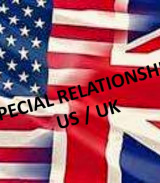 |
Petites perles de la relation (très) spéciale UK-USA
Notes d’actualité, 02 oct, 2014
Observer de près la bien-nommée relation spéciale entre la Grande-Bretagne et l’Amérique est divertissant à plusieurs titres. Outre le spectacle hallucinant de la dépendance extraordinaire dans laquelle les vaillants Britanniques se sont enfermés au fil du temps, le sujet apparaît à la fois comme une échappatoire bienvenue et comme une mise en garde édifiante.
|
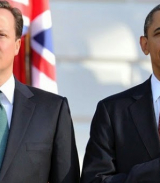 |
Vive l'Ecosse libre?
Notes d’actualité, 18 sept, 2014
Une Ecosse indépendante ? On n'en veut surtout pas, à en juger par la panique qui s’est emparée ces derniers temps des élites « occidentales ». A mesure que les indépendantistes montaient dans les sondages, certains n’ont pas été avares de pressions et de (plus ou moins) subtiles mises en garde.
|
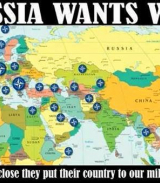 |
OTAN/US : bases permanentes à l’Est ?
Notes d’actualité, 31 mai, 2014
Le ministre polonais des Affaires étrangères n’y va pas par quatre chemins. Dans un récent article du Spiegel allemand, sur l’insuffisante préparation de l’Alliance face à une hypothétique invasion russe, Radek Sikorski fait remarquer : « Il y a des bases au Royaume-Uni, en Espagne, en Allemagne, en Italie et en Turquie. Mais il n’y a aucune base là où on en a besoin ». En avant donc, pour des bases permanentes en Pologne et dans les Etats baltes. Après tout, quoi de mieux pour promouvoir la désescalade?
|
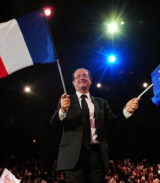 |
L’Europe du Président Hollande
Notes d’actualité, 16 mai, 2014
La tribune du chef de l’Etat à l’occasion de l’anniversaire de la fin de la Seconde guerre mondiale en Europe (et à quinze jours des élections européennes) laisse doublement à désirer. D’une part le raisonnement qui y est exposé manque parfois de cohérence. De l’autre, il ne va pas jusqu’au bout de la partie non-exposée de son raisonnement.
|
 |
Un pour tous, tous pour un ? (Partie 1 : l’OTAN et ses garanties en trompe-l’œil)
Notes d’actualité, 13 mai, 2014
Conséquence immédiate de la crise en Ukraine : la « défense collective » a le vent en poupe. L’un des mythes les plus soigneusement entretenus des relations transatlantiques et, par là même, l’un des tabous les plus persistants de la défense européenne, le concept d’assistance militaire mutuelle a été propulsé sur le devant de la scène. Il serait donc temps de le regarder d’un peu plus près.
|
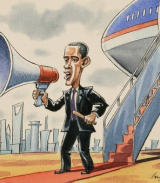 |
Obama sur la corde raide, entre l'Europe et l'Asie
Notes d’actualité, 24 avril, 2014
C’est un vrai numéro d’équilibriste que le président Obama tente de réussir entre ses alliés en Europe d’un côté, et ceux en Asie de l’autre. Le voilà donc en pleine crise ukrainienne, parti faire une tournée pour rassurer ses partenaires asiatiques que le pivot vers eux existe bel et bien - le contraire du message que l’administration US s’efforce d'envoyer à ses alliés européens.
|
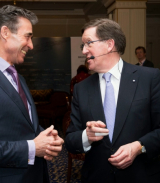 |
Crise en Crimée : l’OTAN saute sur l’opportunité
Notes d’actualité, 24 mars, 2014
Le Secrétaire général de l’Alliance atlantique a du mal à cacher son soulagement. Enfin, à la dernière minute, voici tombée du ciel la raison d’être tant recherchée pour l’OTAN post-Afghanistan. Face à l’ogre russe, vite, il faut se ranger en ordre de bataille. Peu importe si ça fait un peu réchauffé. L’essentiel, c’est que la crise en Ukraine devrait nous aider à en finir, une fois pour toutes, avec les hésitations et les états d’âme qui menaçaient, ces derniers temps, de remettre sérieusement en question l’avenir de « l’Alliance la plus réussie de l’Histoire ».
|
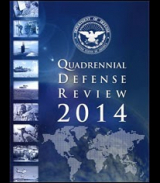 |
Analyse à chaud : Quadrennial Defense Review 2014
Notes d’actualité, 06 mars, 2014
Le voilà, le tout nouveau Quadrennial Defense Review du Pentagone, prêt à être disséqué par les alliés anxieux de voir s’ils sont toujours dans les bonnes grâces de Washington. De ce point de vue, le document est dans la droite lignée de la rhétorique-tactique des responsables US, telle qu’elle fut exposée lors de la Wehrkunde (Conférence sur la sécurité annuelle à Munich) de février dernier. L’Amérique y souffle le chaud (tout en fanfare) et le froid (en catimini). Convaincue, à juste titre, que c’est la meilleure manière de rendre les Européens toujours plus dociles.
|
 |
Crise ukrainienne : petite mise au point préalable
Notes d’actualité, 03 mars, 2014
C'est ce qui s'appelle un timing parfait. Une mission d’information de l’Assemblée nationale vient de présenter les résultats de ses travaux au sujet de « la politique française et européenne vis-à-vis de la Russie ». Voici quelques extraits relatifs à l’Ukraine, tirés du Rapport d’information, et de l’audition des auteurs (Chantal Guittet et Thierry Mariani) qui s’en est suivie. En y ajoutant, sans surprise, une petite touche transatlantique.
|
 |
Pacte Défense Cyber : gare aux alliances !
Theatrum Belli
02 mars, 2014
Le Ministère de la défense a présenté récemment son « Pacte Défense Cyber », un plan d’action en 50 points pour cadrer ses actions en matière de cyberdéfense. Jusqu’ici, rien de plus normal, il s’agit évidemment d’un enjeu d’importance cruciale. Toutefois, ce qui retient immédiatement l’attention, c’est la tension (voire contradiction) entre d’une part l’impératif de souveraineté dans ce domaine hautement stratégique et, de l’autre, l’insistance du Pacte sur des cadres de coopération internationale où, c’est le moins que l’on puisse dire, les partenaires de la France ne partagent pas forcément ce souci.
|
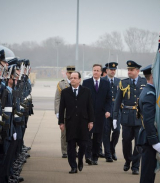 |
L’Europe de la défense, éternelle pomme de la discorde entre la France et le Royaume-Uni
Notes d’actualité, 31 janv, 2014
Au récent sommet franco-britannique, en plein milieu des annonces concernant la coopération militaire bilatérale, le président Hollande a frôlé le crime de lèse-majesté, en osant prétendre que « Le drone de combat préfigure ce que pourrait être une Europe de la défense ». Pour les Britanniques, coopérer, pourquoi pas, mais n'évoquons surtout pas l'Europe, et en particulier pas en l'associant aux questions de défense.
|
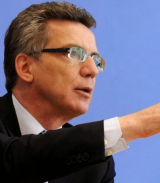 |
Pied de nez allemand à la France et à la Grande-Bretagne? – effet boomerang
Notes d’actualité, 09 janv, 2014
En Allemagne, le ministre sortant de la défense se lâche… D’après Thomas de Maizière, Berlin n’a pas de leçon à recevoir de quiconque, même pas de Paris ou de Londres, concernant la nature et le volume de ses déploiements militaires hors de ses frontières. Et, pour appuyer ses propos, il n'hésite pas à envoyer quelques piques à l’adresse de ses partenaires.
|
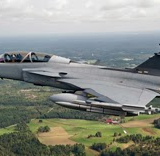 |
Le Gripen au Brésil: un choix pro-américain faute de mieux ?
Notes d’actualité, 21 déc, 2013
Avec le Gripen, le Brésil se résigne à acheter américain, par la petite porte. Peut-être aussi parce qu’il estime ne pas avoir d’autre option, en fin du compte ? Pour rappel, près d'un cinquième des composants de l’avion suédois proviennent des Etats-Unis. Ce qui fut clairement un argument de vente en Europe centrale, dans des pays notoirement pro-américains. Ainsi s’y soulignait-on avoir choisi un appareil dont la turbine est à 60% fabriqué par General Electric, dans l'espoir d’atténuer l’offense faite à l’allié US qui avait employé les grands moyens pour vendre ses F-16.
|
 |
NSA/Europe: Ordre dans le désordre
Theatrum Belli
31 oct, 2013
Ces derniers jours, l’enchaînement d’accusations, de suspicions, de démentis et de révélations à répétition fait que l’on a l’impression d’être devant une affaire aussi complexe qu’impénétrable. Alors qu’au fond elle est plutôt simple. S’y superposent, en réalité, deux affaires. Celle du transfert de données vers l’Amérique par des pays européens, dans le cadre de leurs accords bilatéraux de coopération avec Washington en matière de renseignement. Et celle de la surveillance/espionnage que mènent les Etats-Unis pour leur propre compte, contre ces mêmes pays européens.
|
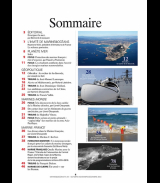 |
Les forces navales européennes, entre éclipse et dépendance ?
Marine&Océans n°241, automne 2013
22 oct, 2013
Le think-tank néo-conservateur American Enterprise Institute vient de publier un rapport particulièrement dense (1) analysant l’évolution des principales marines européennes, sous le titre « L’OTAN en mer : tendances concernant la puissance navale des alliés ». Ses conclusions sont limpides : les marines française, britannique, espagnole et italienne (l’Allemagne étant considérée comme un cas à part) sont toutes confrontées à cet exercice délicat qui consiste à réduire leur format tout en essayant de préserver, dans la mesure du possible, une certaine polyvalence.
|
 |
Analyse à chaud : le rapport Ashton sur la défense européenne 3. (propositions concrètes, opérations militaires)
Notes d’actualité, 17 oct, 2013
Les mesures concrètes proposées dans le rapport Ashton afin d’améliorer la capacité de réaction rapide de l’UE aux crises ne sont guère surprenantes. Par contre un seul élément, le plus important, surprend par son absence. Il s’agit du vieux serpent de mer du Quartier général militaire européen (pour la planification et la conduite des opérations UE), dont la nécessité est aujourd’hui reconnue de tous, sauf le Royaume-Uni qui en fait sa ligne rouge. Le rapport n’en dit même pas un mot. Or s’il y a une mesure susceptible à la fois de réduire le temps de réaction aux crises, d’assurer la continuité, de permettre un véritable retour d’expérience et de supprimer les doublons entre 5 structures nationales différentes ; cette mesure est bien celle-là. Dommage de la passer sous silence.
|
 |
Analyse à chaud : le rapport Ashton sur la défense européenne 2. (relations UE-OTAN)
Notes d’actualité, 16 oct, 2013
Le paragraphe consacré aux relations UE-OTAN est un classique du genre. Il préconise toujours plus de coopération, en tissant des liens toujours plus étroits entre l’UE et l’Alliance. Ce qui n’est pas un mal en soi. Sauf quand on connaît ce qu'il y a derrière ces formules toutes faites. Rappelons qu’au lancement de la PSDC (la politique de sécurité et de défense commune de l’UE), la France était extrêmement vigilante à ne pas laisser « la fleur délicate de la défense européenne se faire écraser dans une embrassade avec le géant militaire qu’est l’OTAN ». A l’époque, même une étude du Center for European Reformbritannique admet, tout en prêchant pour l’inverse, que « les inquiétudes françaises vis-à-vis des priorités US ne sont pas complètement sans fondement ».
|
 |
Le rapport Ashton sur la PSDC: à la fois trop ambitieux et pas assez
Notes d’actualité, 16 oct, 2013
On dit souvent de la défense européenne qu’elle est en hibernation depuis un bon moment. Eh bien, elle ferait mieux d’y rester, plutôt que d’être ressuscitée sur la base du rapport que la Haute représentante vient de présenter en vue du sommet de décembre. Car ledit rapport essaie de cacher son manque d’ambition réelle pour la PSDC (politique de sécurité et de défense commune de l’UE) derrière des initiatives qui, dans ce cadre, ne pourront faire que des dégâts. Mais soyons justes. Accordons-lui au moins d’avoir fait le bon constat. En effet, les trois explications que le rapport avance au départ pour justifier l’importance des efforts de défense sont tout à fait valables (à savoir l’aspect politique pour ce qui est du rôle de l’Europe sur la scène mondiale ; opérationnel quant à disposer de la capacité militaire d’agir le cas échéant ; économique enfin pour soutenir l’innovation, l’emploi et la croissance).
|
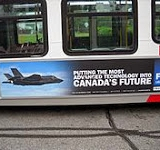 |
Le syndrome JSF au Canada
Notes d’actualité, 12 oct, 2013
Le Canada espère remédier aux anomalies de son système d’acquisition d’équipements militaires grâce à des réformes organisationnelles. On lui souhaite bon courage. Sachant qu’il ne peut s’agir que d’améliorations de façade. Car la centralisation du processus d’acquisition de défense (lequel passe aujourd’hui par trois ministères différents), ne le fera pas sortir du carcan américain pour autant. Sur la base du Defense Production Sharing Agreement de 1956, il s’y est solidement établi une coopération nord-américaine fort déséquilibrée, source de distorsions et d’ennuis constants.
|
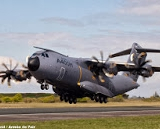 |
L'A400M dans une optique américaine
Notes d’actualité, 02 oct, 2013
Certes les Etats-Unis ne pourront pas ne pas se réjouir officiellement, en voyant leurs alliés commencer à combler l'une des principales lacunes capacitaires qu'ils leur reprochent depuis si longtemps. Mais ce n'est que la façade. L'A400M est un concurrent et un outil d’autonomie européenne comme ils ne les aiment pas. Un article du Washington File du Département d’Etat datant de 2006 précise déjà que « Les US recommandent aux alliés OTAN de mettre en commun de l’argent pour acheter des C-17 ». Une solution présentée comme bénéfique pour les affaires de Boeing et qui serait du même coup la meilleure façon de pallier les carences des Européens en matière de transport stratégique.
|
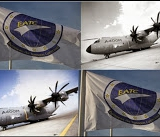 |
L'A400M dans une optique européenne
Notes d’actualité, 02 oct, 2013
Comme l'a dit Hervé Morin, ministre de la défense en 2010: «L'A400M est un programme emblématique sur lequel les Européens ne pouvaient pas renoncer ». En effet, son arrivée signifie plus pour la « défense européenne » que n'importe quelle déclaration pompeuse à l'issue d'une quelconque réunion au sommet. Premièrement, parce que la nouvelle flotte d'avions de transport stratégique (et tactique, l'A400M étant hautement polyvalent) va résorber ce qui fut identifiée comme l'une des lacunes capacitaires majeures de l'Europe de la défense, dès le lancement de celle-ci il y a déjà quinze ans.
|
 |
Le tropisme transatlantique du président d’EADS
Notes d’actualité, 28 sept, 2013
En parlant des perspectives de « l’aéronautique transatlantique », Tom Enders joue cartes sur table maintenant. Dès le départ, son intention d'évincer les Etats européens d'EADS et son désir de le transformer en une compagnie de facto américaine formaient un tout inséparable. C'est logique, ce sont les deux faces de la même médaille.
|
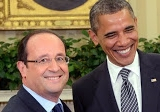 |
Syrie: la France à contre-emploi
Notes d’actualité, 09 sept, 2013
Réduire le capital de sympathie et de respect que la France avait accumulé, de par le monde entier, grâce à l’héritage gaulliste de sa diplomatie, n’est pas chose facile. C’est pourtant ce qui risque d’arriver si le président Hollande ne rectifie pas vite l’image qu’il envoie au sujet de la Syrie.
|
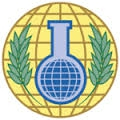 |
Vous avez dit armes chimiques ? – l’Amérique amnésique
Notes d’actualité, 06 sept, 2013
Inutile de répéter tout ce qui a mille fois été dit, à juste titre, sur la barbarie que constitue l’usage d’armes chimiques, et en particulier contre des populations civiles. Impossible, en même temps, de passer à côté de l’imposture des Etats-Unis quand ils dénoncent haut et fort une violation des sacro-saintes normes internationales aujourd’hui.
|
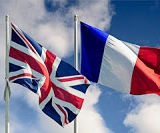 |
Identité européenne: un « malentendu » vieux de quarante ans
Notes d’actualité, 24 aout, 2013
En attendant le sommet « Défense » du décembre prochain, rappelons d’abord un seul petit mot traduit de travers il y a quarante ans, et qui est plus révélateur que des centaines de pages d’études et d’analyses pour expliquer l’impasse de l’Europe de la Défense (et, avec elle, l’impossible émancipation de notre continent).
|
 |
La Commission s'immisce dans les affaires d'armement
Notes d’actualité, 29 juil, 2013
En proposant, le 24 juillet dernier, un plan d’action « visant à accroître l’efficacité et la compétitivité du secteur de la défense », La Commission européenne n’en est pas à son premier essai. Notamment pour se mêler de ce qui ne fut pourtant jamais censé être ses affaires.
|
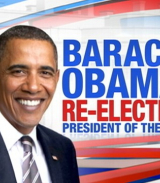 |
L’Europe post-élection… américaine
Theatrum Belli
10 nov, 2012
Que veut dire, pour l’Europe, la réélection de Barack Obama ? Outre la continuité, y aura-t-il plus d’intransigeance sur certains dossiers ou, au contraire, sera-t-il un peu plus attentif aux susceptibilités de ses alliés ? Ce sont le genre de questions avec lesquelles les responsables européens ne cessent de harceler et leurs conseillers et tous ceux qui acceptent de se faire inviter par eux à Washington DC.
|
 |
Wikileaks - sous un PRISM transatlantique
Notes d’actualité, 16 déc, 2010
L'affaire Snowden/PRISM vient de (re)mettre en lumière tout ce que le scandale Wikileaks autour des câbles diplomatiques US avait déjà confirmé de manière éloquente.
|
 |
Le « retour » de la France dans l'OTAN : fausses raisons et vraies conséquences
La Lettre Sentinel n°51, avril 2009
08 avril, 2009
Saluée (ou vilipendée, c’est selon) comme un « retour au bercail », la réintégration des structures militaires intégrées par la France finira-t-elle par faire exploser l’Alliance ? La question n’est paradoxale que d’apparence. A contre-courant des évolutions géopolitiques, basée sur un argumentaire dont la vacuité se manifestera au grand jour avant même qu’on n’ait commencé à changer les enseignes des bureaux et réimprimé les cartes de visite, cette décision (formellement pas encore prise) est surtout perçue et interprétée de manière diamétralement opposée par les protagonistes. D’où les attentes contradictoires, pour ne pas dire incompatibles, des deux côtés.
|
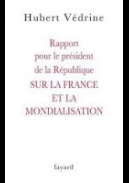 |
La France, l’OTAN et l’Occident – à la marge du rapport Védrine
La Lettre Sentinel n°47, octobre 2007
31 oct, 2007
Dans son Rapport sur la France et la mondialisation, rédigé à la demande du Président de la République, Hubert Védrine aborde la question de l’OTAN à l’intérieur du chapitre consacré à « L’option atlantiste/occidentaliste ». Fort à propos, l’ex-ministre des Affaires étrangères distingue cette dernière de « la politique normale d’amitié et de coopération avec les Etats-Unis », et la décrit comme « une réorientation en profondeur » qui s’inscrit dans le schéma du choc des civilisations : « Menacés, les Occidentaux devraient se serrer les coudes ».
|
 |
L'avant-garde européenne : diagnostic, remède, raison d être
Intervention aux Assises des Associations d'Europe
28 sept, 2007
La réflexion qui suit se propose de partir d’un diagnostic (celui de l’impasse), elle se poursuit en identifiant le remède (projet d’avant-garde), pour se clore par l’évocation de la raison d’être de toute initiative européenne digne de ce nom (sauvegarde de notre liberté de choix).
|
 |
Convergences et collisions euro-américaines (revue de livre)
La Lettre Sentinel n°46, juin 2007
28 juin, 2007
Un coup de projecteur dans les coulisses de l’activisme (public-privé) américain à l’Union européenne, voilà ce que nous propose Florence Autret dans son dernier ouvrage. Et elle tient sa promesse. L’éclairage qu’elle apporte est impitoyable : non pas tant pour ceux qui agissent pour promouvoir, certes parfois un tantinet trop brutalement, les intérêts particuliers ou collectifs qu’ils représentent, mais pour ceux qui se contentent de subir – au risque de compromettre, pour ne pas dire trahir, les intérêts qu’ils seraient censés, eux, défendre et représenter.
|
 |
L'autonomie européenne entre rhétorique et réalités
La Lettre Sentinel n°41-42, octobre-novembre 2006
30 nov, 2006
Pour ce qui est du choix systématiquement occulté entre dépendance ou indépendance pour l'Europe, dans les textes, tout semble clair comme de l’eau de roche. Au moment du lancement de la PESD (politique européenne de sécurité et de défense), en juin 1999 à Cologne, la déclaration des Quinze stipule d’emblée l’exigence d’autonomie et de crédibilité des moyens de l’Union. Ce qui s’inscrit parfaitement dans les objectifs déclarés à l’article 11 du Traité sur l’Union européenne, notamment « la sauvegarde des valeurs communes, des intérêts fondamentaux, de l’indépendance et de l’intégrité » de l’UE. Toutefois, non seulement nous sommes toujours en attente pour voir quand ces belles paroles seront-elles traduites dans les actes, mais la question même de savoir si elles devraient l’être un jour reste objet de débat.
|
 |
Vers quel « marché commun » en matière d’armement ? (sur le code de conduite volontaire sur les marchés publics d’équipements de défense)
Biztonságpolitikai és Honvédelmi Kutatások Központ
06 oct, 2006
Le dénommé code de conduite, entré en vigueur le 1 juillet 2006 avec la participation de 22 Etats-membres de l’Union et censé encourager « l’européanisation » des marchés publics d’équipements militaires, n’est que le début. Il marque notamment l’entrée en scène, en des termes implacablement concrets, des questions politiques fondamentales (différées depuis plus d’un demi-siècle) de la construction européenne. En tant que début, il est par nature imparfait et ambigu. Mais reflète à merveille les possibilités et les limites de la volonté politique qui est à son origine.
|
 |
Hystérie de masse et Realpolitik autour de Mahomet
interview ma.hu
09 févr, 2006
"L’Europe paye le prix fort de sa couardise habituelle et, encore une fois, la plupart de ses politiciens ne songent qu’à baisser les bras. Or, à la longue, ce n’est que de l’huile sur le feu." D’autant que "l’agitation d’aujourd’hui est avant tout un épisode dans un bras de fer infiniment plus large."
|
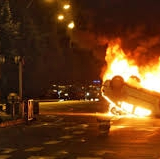 |
L'Europe : chronique d’un déclin annoncé (démographie, immigration, intégration)
Népszabadság Online
23 janv, 2006
C’est toujours un spectacle édifiant de voir les dirigeants européens - maîtres dans l’art du démenti, du camouflage et de la mise sous tapis des dossiers délicats - lorsqu’ils se retrouvent le dos au mur. Tel était le cas lors des émeutes en France, notamment face aux avertissements plutôt vigoureux traduisant les tensions internes des sociétés européennes.
|
 |
Histoire de satellites entre les deux rives de l'Atlantique 1 (Galileo vs GPS)
Népszabadság Online
10 janv, 2006
Galileo (le système européen de navigation par satellite qui se prépare dorénavant aussi dans l’espace, suite au lancement du premier satellite de démonstration) est l’un des projets stratégiques décisifs de la décennie. Dans tous les sens, y compris militaire, du terme. Il préfère, bien sûr, se faire discret à cet égard. Qui plus est, si d’autres en font la remarque, il dément avec véhémence.
|
 |
Etat des lieux de la défense européenne
Az EU biztonság és védelempolitikai dokumentumai 3
19 déc, 2005
Le présent papier au sujet de la politique de sécurité et de défense de l’Union européenne (PESD) fait un bref tour d’horizon sur 1. Les développements de l’an 2005 ; 2. Opinion publique et contrôle démocratique ; 3. Industries et technologies d’armement ; 4. Gestion civile des crises ; 5. Coopération avec l’ONU.
|
 |
L'idée d'avant-garde replacée dans son contexte
intervention Réunion du Forum Carolus, Strasbourg
25 nov, 2005
L’Europe d’aujourd’hui se caractérise par un flou stratégique et identitaire : elle est sans contours géographiques et politiques. Ses frontières géographiques restent toujours imprécises aussi bien vers l’Est et le Sud, que dans la direction de l’Ouest. La souveraineté européenne se retrouve, elle, dans une sorte de zone grise : les Etats-membres abdiquent des pans entiers de leur souveraineté nationale sans qu’il y ait au niveau européen une entité politique prête et capable de défendre la capacité de décision et d’action autonome des Européens.
|
 |
Modèle européen de sécurité
Népszabadság Online
25 oct, 2005
Lâche, impuissant, mollasson, tigre en papier. Voici quelques-uns des adjectifs employés outre-Atlantique pour décrire l’attitude européenne en matière de sécurité. A la limite c’est même compréhensible, si l’on regarde à partir de la spirale auto-alimentée du budget militaire américain (lequel s’élève à près de la moitié des dépenses militaires du monde entier) ou depuis les innombrables gadgets spatiaux dont le degré de fiabilité sur le plan du renseignement est de notoriété publique depuis le conflit en Irak. Mais vu les pieds sur terre, le tableau change quelque peu.
|
 |
L'Union et le peuple
Népszabadság Online
19 oct, 2005
« On ne tombe pas amoureux d’un grand marché » - disait Jacques Delors, ancien président de la Commission européenne. En effet, c’est la leçon la plus importante que les dirigeants de l’Union devraient tirer du désaveu populaire croissant. Car, manifestement, les citoyens voudraient plus que cette Europe mutilée à l'anglo-saxonne
|
 |
L'avant-garde comme nécessité et opportunité
Les Débats du Forum Carolus
13 oct, 2005
"L’Europe intégrée où il n’y aurait pas de politique, se mettrait alors à dépendre de quelqu’un du dehors qui, lui, en aurait une." (Charles de Gaulle, 1961). Il y a une seule question qui vaille dans l’état actuel de l’Union européenne. C’est de savoir si cette crise est enfin « la » crise. La réponse dépend uniquement de la volonté politique des dirigeants des Etats membres, au premier chef desquels la France et l’Allemagne.
|
 |
Berlin-Paris-Washington: réflexions à la veille des élections en Allemagne
Notes d’actualité, 17 sept, 2005
Il est impressionnant de voir à chaque élection la plupart des commentaires prêts à tomber et à retomber dans le même piège. Prenant la rhétorique pour argent comptant et faisant fi des réalités géopolitiques, ils nous racontent – les uns avec enthousiasme, d’autres avec appréhension – à quel point la politique étrangère du pays en question est susceptible d’un changement fondamental. Pourtant, c’est loin d’être aussi simple.
|
 |
Explosions en perspective
Népszabadság Online
08 juil, 2005
Au lendemain des « incidents » terroristes à Londres, il est important de noter que ce qui s’est passé n’est pas une surprise, pas un échec, pas un réveil européen et pas le début d’une nouvelle ère. La principale caractéristique de la série d’attentats qui s’est produite hier dans la capitale britannique, est qu’elle n’a absolument rien changé ni à la menace terroriste, ni à la lutte contre celle-ci. Les rhétoriques politiciennes ou journalistiques qui prétendent le contraire sont simplement à la recherche de prétextes.
|
 |
Le grand écart des Britanniques au-dessus de l'Atlantique
Népszabadság Online
05 juil, 2005
L’adhésion de l’Angleterre à la Communauté européenne marquerait le début d’une dilution au bout de laquelle « il apparaîtrait une Communauté atlantique colossale sous dépendance et direction américaines et qui aurait tôt fait d’absorber la communauté de l’Europe. » Les mots prophétiques du général De Gaulle, en 1963, ne cessent de se vérifier depuis.
|
 |
L'UE, la crise, la solution et nous
Népszabadság Online
20 juin, 2005
L’élargissement de l’Union européenne en 2004 était une erreur. On le savait depuis que les anciens Etats-membres se révélaient incapables de saisir l’occasion qui se présentait avec le projet de confédération européenne de François Mitterrand, et n’avaient pas la volonté politique pour mettre en route aucune autre forme de différenciation sur la base d'ambitions politiques durant la décennie qui a suivi.
|
 |
La souffrance de l'Union et le remède
Népszabadság Online
04 juin, 2005
Il y a une seule question qui vaille dans tout ce chaos autour du traité constitutionnel. C’est de savoir si cette crise est enfin « la » crise. La réponse dépend uniquement de la volonté politique des dirigeants des Etats membres, au premier chef desquels la France et l’Allemagne. La souffrance est le résultat non pas du, mais des élargissements. Les chefs d’Etat et de gouvernement des Six, en 1969 à la Haye, avaient beau dire ne pas marquer leur accord pour l’ouverture des négociations d’adhésion que « pour autant que les Etats candidats acceptent les traités et leurs finalité politiques ».
|
 |
La conscience française de l'Europe
Népszabadság Online
27 mai, 2005
D’après Madelaine Albright, ex-Secrétaire d’Etat américain: « Pour comprendre l’Union européenne on doit être un génie – ou français ». En effet, la France constitue la clef-de-voûte de tout le projet européen. Un état de fait que, paradoxalement, les débats houleux autour du traité dit constitutionnel ne font que renforcer.
|
 |
Les survivants de Mars
ma.hu
09 mai, 2005
Les thèses sur (la prétendue) impuissance de l’Europe et sur la (supposément) bienveillante omnipotence (autoproclamée) des Etats-Unis témoignent d'une profonde ignorance.
|
 |
Histoire d'avions entre les deux rives de l'Atlantique 2 (Airbus vs. Boeing)
Népszabadság Online
30 avril, 2005
« Pourquoi le gouvernement américain soutient-il et subventionne-t-il l’industrie aéronautique américaine à travers des contrats de la défense ? Simplement parce que l’avenir des USA, et celui de l'Europe dans notre cas, ne réside pas dans les parfums ou les pop-corns. L’avenir, c’est l'électronique, l’informatique, l'avion, les missiles et l'espace. » - la remarque a été faite par Jean Pierson, ex-président d'Airbus Industrie, en 1987.
|
 |
Histoire d'avions entre les deux rives de l'Atlantique 1 (Joint Strike Fighter/F35)
Népszabadság Online
08 avril, 2005
L’histoire mouvementée de l’avion militaire Joint Strike Fighter (F35) est une véritable petite fable édifiante. Elle nous permet de contempler d’un côté les mécanismes de fonctionnement parfois presque pervers de la politique étrangère et de défense des Etats-Unis et, de l’autre, le processus d’abandon volontaire des positions et des atouts européens. Bref, il s’agit d’un condensé éminemment instructif de l’ensemble des relations transatlantiques.
|
 |
Le casse-tête onusien
Népszabadság Online
24 mars, 2005
Si l’année 2005 est celle de l’ONU, ce n’est pas tant en raison des festivités autour de son 60ème anniversaire, mais à cause plutôt du rapport d’un Groupe de personnalités, déposé en décembre dernier sur la demande du Secrétaire général, intitulé « Un monde plus sûr ». En effet, le sort qui sera réservé au contenu de ce document d’une centaine de pages va envoyer un message fort, que ce soit positif ou négatif, sur l'avenir de l'organisation.
|
 |
Faux miroir américain (propagande, Etats-Unis, Europe)
Népszabadság Online
02 janv, 2005
Ce n’est pas les Etats-Unis qui se comportent de façon inexplicable, mais nous les Européens. Washington agit de manière tout à fait prévisible, en fonction de sa position. Cela ne le rend pas moins dangeureux ni pour soi-même, ni pour autrui, de même que ne réduit pas le décalage énorme entre ses intentions affichées et ses aspirations véritables. Mais au fond, son comportement est éminemment logique.
|
 |
Batailles euro-américaines dans l'espace
Népszabadság Online
30 nov, 2004
Ce n’est pas dans « une galaxie lointaine, très lointaine », mais néanmoins au-delà de l’atmosphère terrestre que se déroule l’une des manches les plus passionnantes du match transatlantique. Bien qu’il ne s’agisse pas d’une véritable compétition. Car si pour les Etats-Unis l’enjeu est de s’arroger un contrôle absolu des activités spatiales, l’Europe, elle, ne peut aspirer qu’à essayer d’éviter la dépendance totale.
|
 |
Les nouveautés du traité constitutionnel en matière de politique de sécurité et de défense
Eszmélet n°64. November 2004
01 nov, 2004
La politique de sécurité et de défense est le domaine où le nouveau traité de l’Union, baptisé « Constitution », contient le plus d’infléchissements positifs. Ces nouveautés sont cruciales quel que soit le sort immédiat de la "Constitution": ils démontrent le point d'équilibre délicat entre l'exigence minimale pour un fonctionnement efficace et le degré maximum de volonté politique au niveau des Vingt-Cinq.
|
 |
L'adhésion de la Turquie à l'UE: beaucoup de bruit pour rien
Népszabadság Online
06 oct, 2004
Le rapport mitigé de la Commission sur l’adhésion de la Turquie marquait la fin d’une double imposture. Celle à l’adresse de la Turquie avec le mirage d’un statut d’Etat-membre à part entière (manifestement déjà en tant que candidate elle n’a pas les mêmes droits que les autres). Et celle destinée à l’opinion publique européenne prétendant que les élargissements successifs n’altèrent pas fondamentalement la nature de l’Union. Car c’est précisément ce qu’ils font.
|
 |
L'Europe face au nouveau type de terrorisme
Journal Francophone de Budapest
30 avril, 2004
Avec les attentats de Madrid, le « nouveau type de terrorisme » fit irruption d’une manière tragiquement spectaculaire sur le sol européen. Il n’en reste pas moins que ce carnage était tout sauf inattendu.
|
 |
Le triangle Paris-Berlin-Londres: une tentative de quadrature du cercle
Journal Francophone de Budapest
03 avril, 2004
Lorsque les dirigeants français, allemand et britannique se sont retrouvés à Berlin pour leur troisième sommet tripartite en moins de six mois, de nombreux partenaires ont exprimé la crainte de l’institutionnalisation d’une sorte de triumvirat.
|
 |
Chevaux de Troie ? : la nouvelle Europe à l’entrée de l’Union
Journal Francophone de Budapest
18 févr, 2004
Participant à un forum sur la sécurité transatlantique à Munich, le 3 février dernier, le secrétaire américain à la Défense, Donald Rumsfeld, persiste et signe. Il déclare toujours « ne pas regretter » sa remarque scandaleuse de janvier 2003 sur l’opposition entre une « vieille Europe » traîtresse mais sans importance (à savoir la France et l’Allemagne opposées à la guerre en Irak) et la « nouvelle Europe » fidèle et pleine de promesses (il s’agit des pays d’Europe centrale et orientale dont les gouvernements ont fait allégeance à l’Amérique belliciste).
|
 |
La défense européenne au centre des débats
Journal Francophone de Budapest
03 déc, 2003
Quelques mois après le paroxysme de la crise irakienne (du moins en ce qui concerne les affrontements transatlantiques et intra-européens qu’elle avait engendrés), en pleine phase finale de la Conférence intergouvernementale (CIG) censée décider de la Constitution européenne, et à la veille de l’adhésion des dix nouveaux membres à l’Union, le dossier de la défense européenne semble avoir atteint son heure de vérité.
|
 |
Beaucoup de bruit autour de la pseudo-Constitution européenne
Journal Francophone de Budapest
15 oct, 2003
Tous les commentateurs avisés, qu’ils soient déçus ou soulagés, s’accordent pour dire que le texte qui fera l’objet d’âpres négociations lors de la Conférence intergouvernementale (CIG) lancée le 4 octobre dernier, n’a de Constitution que le nom. Et encore.
|
 |
La présidence italienne de l UE (2) : scénarios et dramaturgie
Journal Francophone de Budapest
03 sept, 2003
« Ne vous inquiétez pas, six mois sont vite passés », c’est en ces termes que Silvio Berlusconi a voulu calmer les députés européens indignés par ses propos et son comportement dès le tout début du semestre de présidence italienne.
|
 |
La présidence italienne de l UE (1) : acteurs et mise en scène
Journal Francophone de Budapest
13 aout, 2003
L’Italie berlusconienne a pris les rênes de l’Union européenne dans un climat d’attente inquiète, où contrastaient un sentiment général exprimé par l’hebdomadaire britannique « The Economist » qui jugeait le président du Conseil italien « inapte à diriger l’Europe » et les déclarations confiantes de celui qui se dit « condamné à toujours gagner ».
|
 |
La défense européenne entre en action
Journal Francophone de Budapest
09 juil, 2003
Dans la foulée de la guerre en Irak, des débats autour de la future Constitution européenne et des préparatifs pour l’adhésion de dix nouveaux pays à l’UE, les premiers pas concrets de l’Europe de la défense sont passés presque inaperçus.
|
 |
La Grande-Bretagne et l’Euro(pe) : la non-décision
Journal Francophone de Budapest
18 juin, 2003
Fidèle aux plus profondes traditions de la politique britanniques en matière européenne, l’annonce de Gordon Brown, ministre des Finances, sur l’ajournement de la décision sur l’euro se définit, une fois de plus, par le tryptique « Oui. Non. Peut-être. ».
|
 |
L’Europe face au regain du terrorisme international
Journal Francophone de Budapest
28 mai, 2003
La série d’attentats terroristes du milieu du mois de mai semble réactualiser un avertissement lancé il y a un an par le directeur d’Europol et jugé trop alarmiste à l’époque. En juin 2002, Storbeck expliquait que « La plupart des experts ne se demandent pas s'il y aura un attentat, mais quand il aura lieu et par qui il sera perpétré. C'est une menace pour l'Union européenne, pour ses institutions et ses citoyens ».
|
 |
Le retour aux fondements serait-il un iconoclasme ?
Journal Francophone de Budapest
14 mai, 2003
A l’occasion de l’anniversaire de la déclaration Schuman, il est difficile de ne pas s’interroger sur la portée et la pertinence du discours du salon de l’Horloge par rapport à l’état actuel de la construction européenne.
|
 |
La grande Europe officialisée à Athènes
Journal Francophone de Budapest
23 avril, 2003
Si le Conseil européen d’Athènes n’a rien apporté de fondamentalement nouveau (vu que la décision d’admettre dix nouveaux pays avait été prise à Copenhague et que leur entrée dans l’Union ne deviendra effective que le 1er mai 2004), le choix du site, de même que la présence collective et la prestation solennelle des protagonistes ont incontestablement donné de l’allure à la cérémonie.
|
 |
La guerre en Irak: vers une nouvelle logique pour la défense européenne?
Journal Francophone de Budapest
02 avril, 2003
Le constat des divisions parmi les Etats membres de l’UE au sujet de l’intervention américaine en Irak se conjugue avec la perspective d’un élargissement imminente à 10 nouveaux pays pour renforcer la prise de conscience sur l’impossibilité d’avancer ensemble dans les domaines ultrasensibles comme celui de la politique étrangère et de défense.
|
 |
La remontrance de Chirac : aurait-il vraiment mieux fait de se taire ?
Journal Francophone de Budapest
05 mars, 2003
S’indignant des réprimandes adressées par le président français aux pays candidats – lesquels s’étaient alignés selon lui « trop rapidement » et d’une manière « irresponsable » sur la position américaine au sujet de l’Irak – la plupart des réactions internationales se délectaient à remarquer que c’est plutôt l’auteur de la fameuse phrase qui aurait « manqué une bonne occasion de se taire ».
|
 |
Sans tambours ni trompettes – le très controversé traité de Nice entre en vigueur
Journal Francophone de Budapest
19 févr, 2003
Si l’on en juge par le rythme de plus en plus soutenu auquel les traités européens se succèdent les uns aux autres, on croirait que la perspective de l’élargissement a bien fini par susciter cette prise de conscience que réclamaient ceux qui voulaient consolider la maison européenne avant qu’elle n’accueille d’autres habitants. Par contre, si l’on observe les résultats pour le moins mitigés du traité de Nice – lequel, étant entré en vigueur le 1er février dernier, est le dernier en date –, on n’arrive pas forcément à la même conclusion.
|
 |
Le vieux couple franco-allemand réinventera-t-il la nouvelle Europe ?
Journal Francophone de Budapest
05 févr, 2003
A la lumière d’une remarque acerbe du secrétaire d’Etat américain à la Défense sur la France et l’Allemagne, il convient de revenir sur l’état actuel et les projets d’avenir du couple franco-allemand qui vient de fêter le 40ème anniversaire du Traité de l’Elysée.[1]
|
 |
L'Europe face à la crise irakienne
Journal Francophone de Budapest
22 janv, 2003
En attendant la remise du rapport des inspecteurs de l’ONU en Irak (prévue pour le 27 janvier prochain), un bref aperçu sur l’approche européenne au sujet de la guerre annoncée pourrait mettre en évidence ce qui fait la spécificité de l’UE sur ce dossier d’actualité.
|
 |
Un sommet européen pas comme les autres
Journal Francophone de Budapest
18 déc, 2002
Une fois n’est pas coutume, l’usage – si souvent abusif – du terme « historique » est pleinement et même doublement justifié au sujet du sommet de Copenhague.
|
 |
Au miroir de la Turquie, l'Europe s interroge sur elle-même
Journal Francophone de Budapest
28 nov, 2002
Avec ses quelques phrases exprimant son profond désaccord et ses craintes au sujet de l’adhésion, à terme, de la Turquie à l’Union européenne, Valéry Giscard d’Estaing (président de la Convention chargée de débattre les questions liées à l’avenir de la construction européenne) a jeté non pas un pavé, mais un énorme rocher dans la mare.
|
 |
Retour dans l'arène : l'Allemagne post-électorale et l'Europe
Journal Francophone de Budapest
01 nov, 2002
La reconduction au pouvoir de la coalition de gauche « SPD-Verts » en Allemagne est considérée par beaucoup comme le signal fort d’une inversion de tendance après les succès en chaîne des droites européennes en Espagne, en Autriche, en Italie, au Danemark, au Portugal, au Pays-Bas et en France. Néanmoins, cet impact sur la configuration politique de l’UE mis à part, la victoire – très courte – de l’équipe du chancelier Schröder ne semble pas susciter de réflexions particulières au sujet de la politique européenne de l’ancien nouveau gouvernement allemand.
|
 |
L opinion publique de l'UE et l'élargissement : bombe à retardement
Journal Francophone de Budapest
15 oct, 2002
Paradoxalement, c’est à la suite de l’échec du premier référendum irlandais, en juin 2001, sur la ratification du traité de Nice – rejeté par la population principalement par crainte d’être obligés d’abandonner leur neutralité traditionnelle – que les autorités et les médias européennes se sont pour la première fois sérieusement posé des questions sur l’attitude de l’opinion publique face à l’élargissement qui se prépare.
|
 |
La question irakienne, révélatrice des faiblesses de l'Europe politique
Journal Francophone de Budapest
15 sept, 2002
A quelques mois de la décision historique sur l’adhésion des nouveaux membres, l’actualité internationale, dominée par l’éventualité d’une attaque américaine contre l’Irak, pousse à s’interroger – dans la perspective d’une UE à 25 – sur le dilemme « Europe-espace contre Europe-puissance ».
|
 |
Débats houleux en perspective autour de la politique agricole commune
Journal francophone de Budapest
25 juil, 2002
En présentant, le 10 juillet dernier, sa révision à mi-parcours de la PAC, la Commission a provoqué des réactions extrêmes, allant des accusations de vouloir détruire les campagnes européennes aux éloges enthousiastes sur l’opportunité et la pertinence des réformes proposées. Car au lieu d’un simple toilettage technique, tel que c’était prévu dans l’Agenda 2000, il s’agirait là d’une véritable réforme en profondeur de la politique la plus emblématique et la plus coûteuse (elle consomme près de la moitié du budget total) de l’Union européenne. Vu l’enjeu à la fois identitaire et financier du débat, des scénarii catastrophes – parmi lesquels le report temporaire de l’élargissement fait pâle figure face aux hypothèses sur la rupture définitive de l’axe franco-allemand, ouvrant la voie à une crise communautaire générale dont l’euro serait la première victime – ont été évoqués pour illustrer les risques encourus au cas où les Etats membres ne parviendraient pas à un accord.
|
 |
La présidence danoise de l’UE et l’élargissement : l’heure de la vérité
Journal francophone de Budapest
03 juil, 2002
Calendrier oblige, l’élargissement sera la priorité absolue de la présidence danoise de l’Union européenne de cette deuxième moitié de 2002. Malgré le nombre important des autres dossiers à traiter (dans les domaines de la sécurité et justice, du développement durable, de la sécurité alimentaire et des relations extérieures) l’attention de la présidence se focalisera sur l’objectif primordial de clôturer les négociations avec les pays candidats qui seront jugés prêts d’ici la fin de l’année. Le parcours jusqu’en décembre est semé d’embûches, mais la détermination du Danemark d’arriver au bout de sa tâche ne fait pas de doute. D’autant que l’élargissement est véritablement la seule ambition européenne de ce petit royaume nordique (de 5,3 millions d’habitants), connu pour sa réticence face à toute nouvelle initiative politique de l’UE.
|
 |
Négociations d’adhésion : le très épineux dossier agricole
Journal francophone de Budapest
25 mai, 2002
A partir de mi-avril, la convergence de plusieurs développements touchant de près l’avenir de l’agriculture européenne a propulsé au premier plan de l’actualité le dossier agricole, annoncé depuis longtemps comme l’une des éventuelles pierres d’achoppement des négociations d’adhésion.
|
 |
En marge d un anniversaire… (dix ans après la dissolution du Pacte de Varsovie)
Journal Francophone de Budapest
01 juil, 2001
Lorsque le 1er juillet 1991, les pays membres du Pacte de Varsovie - à la fois symbole et instrument concret de l'emprise soviétique sur l'Europe centrale et orientale - signent la dissolution officielle del'organisation, ils mettent le point final à un mouvement de désintégration devenu inéluctable.
|
|
 |
Les plus lus

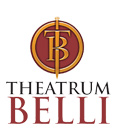
|



